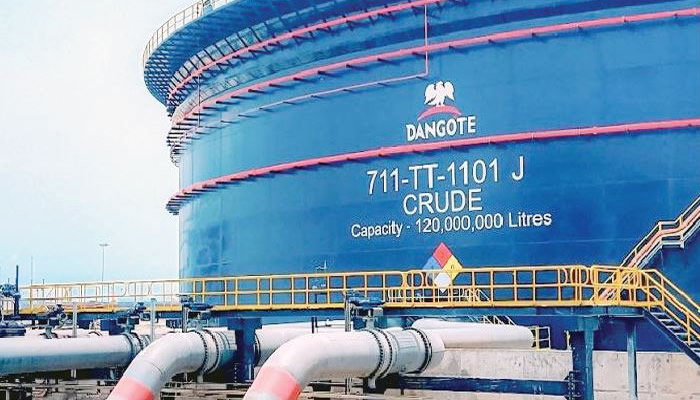The Delta State Commissioner for Finance, Fidelis Tilije, has decried the continuous importation of Premium Motor Spirit into Nigeria, asserting that the Dangote and Port Harcourt refineries have the capacity to meet the nation’s local fuel consumption needs.
Tilije made this statement on Wednesday while addressing participants at the three-day 8th National Council on Hydrocarbons organized by the Ministry of Petroleum Resources in Asaba, the Delta State capital.
He said, “There has been an ongoing debate about whether the Port Harcourt refinery is operational or not, but we have seen trucks confirming that it is indeed functional.
“We are pleased that the Port Harcourt refinery is now operational, and with the Dangote refinery also coming on stream, we believe they can collectively meet the country’s PMS consumption needs.
“Why are we still importing PMS into this country? It’s troubling that we cannot ascertain the exact volume of PMS consumed daily. If you ask the NNPC, they will give one figure, and the Ministry of Petroleum will provide another. This lack of clarity on consumption figures remains a challenge.”
Tilije also questioned the lingering subsidy system despite the government’s declaration of its removal. He cited Section 118 of the Petroleum Industry Act which prohibits PMS importation unless there is insufficient local production.
“The era of fuel subsidy may be over, but are we truly free from it? The PIA stipulates that PMS should not be imported unless local content is insufficient. Yet, we are still importing. This raises questions about the efficiency of our policies,” he said.
The commissioner also expressed concerns about the Petroleum Industry Act’s implementation, stating that it has created more challenges than solutions in the oil industry.
“As it stands, we do not even know the shareholders of NNPC Limited. Is it wholly owned by the Federal Government or by sub-national governments as well? This ambiguity needs to be addressed urgently,” Tilije added.
He urged the council to devise strategies to revitalize the hydrocarbons sector, emphasizing that oil remains the major revenue source for the Federal Government.
The Commisioner also highlighted the need to address the environmental challenges faced by oil-producing communities, particularly the cleanup of Ogoniland.
“The Federal Government must recognize these challenges and provide sustainable solutions to improve the lives of host communities,” he stated.
In his remarks, the Delta State Commissioner for Oil and Gas, Peter Uviejitibor, emphasised the importance of implementing the PIA effectively to ensure that oil-rich communities benefit socio-economically from Nigeria’s abundant hydrocarbons.
Uviejitibor called for a review of the PIA, citing the lack of a defined role for state governments in its implementation.
